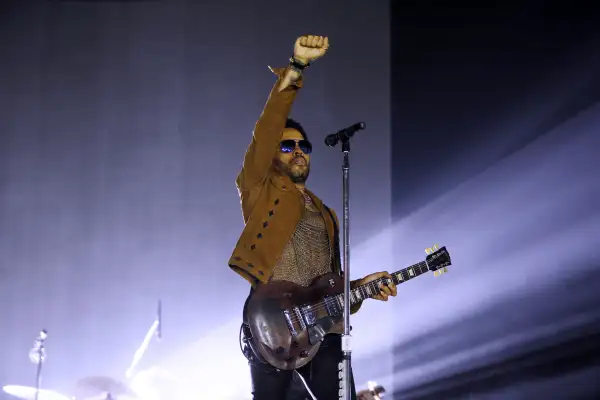The Last Boomer Turns 50—but This G-G-Generation Ain't Done Yet

Nineteen years ago the first baby boomer turned 50, and a barrage of headlines marked the aging of America. As this year began, the last boomer had just turned 50—and few seemed to notice. Could it be that boomers are officially old news?
God knows we’ve spilled barrels of ink chronicling the generation that in its youth simply wanted to turn on, tune in, and drop out. We obsessed over every boomer adult life phase, from the day they finally started trusting people over 30 through the onset of their retirement years. What is left to say?
I’m a boomer. I’ve written two books about boomers. My g-g-generation has changed a lot of rules. We stood for civil rights and sexual liberation and against war, our megaphone amplified by our unprecedented numbers: 78 million strong. Our women went to work outside the home. We decided not to wear ties on Friday. We turned into workaholics who made the office our second residence and pursued the American Dream to the finish.
We’ve been selfish at times, showing the world how to live for today and run up our credit cards in the process. Free spending is part of what gave us influence as marketing companies sought to give us whatever we believed we needed. But a fair chunk of our materialism vanished in the Great Recession, and with age we’re finding that we already have most of the things we really need.
We will continue spending, of course—on meds, cruise trips, and Depends—even if it means taking out a reverse mortgage like ones The Fonz, the eldest of our generation, hawks on daytime TV. Yet leisure travel and pills aren’t economic drivers, not like real estate, infrastructure, and technology. Boomers are stuck on email in a SnapChat world. And the ultimate boomer buzz kill may be that we’ve begun to die. Our numbers have fallen 4% to 75 million, according to U.S. Census estimates.
Meanwhile our coddled, diverse, highly educated, do-gooder, multitasking tech-dweeb children who can’t seem to launch are finding their place at center stage. I can say this. I have three. I love every aspect of what they bring to the world. They are new and fascinating and driven in their own way. These millennials number 80 million, surpassing boomers in a key metric that now makes them prime grist for the marketers’ mill and guarantees sociologists and demographers will analyze and fuss over them for decades.
That’s as it should be. Millennials are the next pig in the python. Their numbers will reshape life phases again as they marry, parent, set up house, pursue careers, and retire. Already their influence has changed the workplace as they value meaning and experience more highly than loyalty and advancement. Millennials are upending the hotel and auto industries, real estate, and more with a sharing economy. I can’t wait to see what comes next.
But let’s not bury the boomers too quickly. For one thing, those past age 55 control 75% of America’s wealth. Well fortified, this generation is not ready to call it a day. Healthcare, which we will spend a fortune on in coming years, is 17% of the economy and one key area where boomers remain agents of change. We may be older but we will pay up to look good and feel good. We may be tech challenged but we’ll buy smart shoes to help us find the way home after the onset of dementia.
We haven’t finished changing retirement yet, either. Like The Fonz, who found an encore career as a pitchman, boomers living to 88 or 92 cannot imagine (or afford) 30 years of leisure. We are only beginning to reshape these last decades of life through phased retirement schemes, late-life careers, and business startups. We are exploring financial products like deferred annuities and 401(k) plan investments that convert to lifetime income so we don’t run out money. Financial institutions are only starting to focus on millennials; to them, boomers remain highly relevant.
Part of this new retirement is also about giving back. Boomers who wanted to change the world as twentysomethings but let life get in the way for three decades are returning to their activist roots and opening new doors in the world of philanthropy through mentoring programs and launching their own nonprofits. With life experience and more connections, and with greater influence, wisdom, and resources, we are finding it easier to make a difference without making the evening news.
Finally, boomers will be heard from one more time on the biggest issue of them all: how we die. Ours will be the first generation to broadly eschew painful life-extending procedures and make the most of palliative care to live better in fewer days, and then die with dignity. Our pursuit of a good death—checking out on our terms and saying no to becoming a burden on loved ones—will have broad implications for the legal system, retirement and estate planning, medical science, and hospitals and eldercare facilities. This is truly the last frontier, and boomers are pushing through the weeds. We may be old news. But we ain’t done yet.
